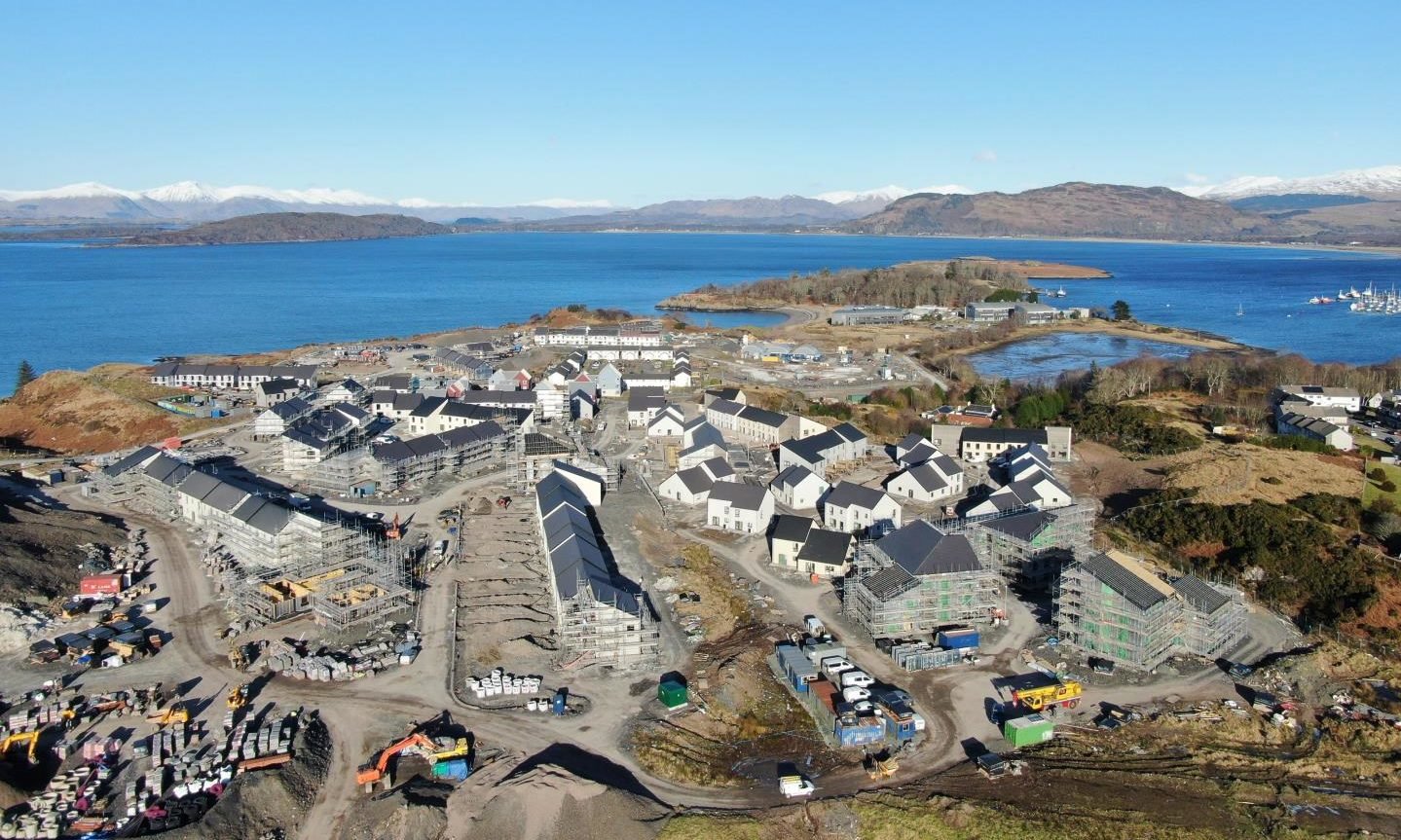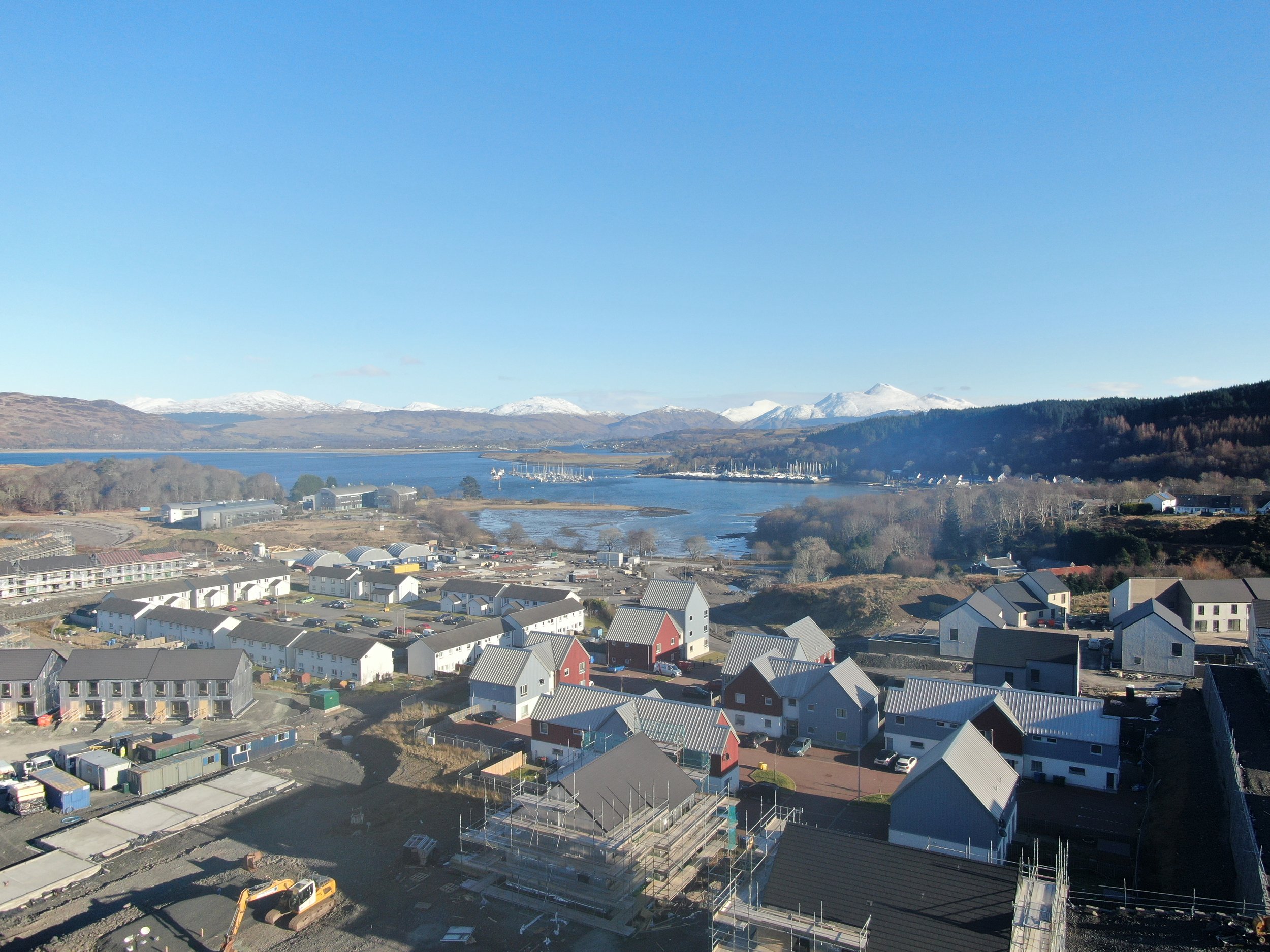Zero direct emissions heat in new build affordable homes: Dunbeg, Oban
In Argyll and Bute, completed Link Group developments are managed by West Highland Housing Association (WHHA). The Group has c. 10 years of experience with Air Source Heat Pumps (ASHPs), as well as biomass boilers and ground source heat pump systems. For the Dunbeg Phase 3 development, ASHPs were the default consideration, but a consultant’s options appraisal report confirmed them as the most cost effective heating systems, over a biomass heat network.
Heating system installation
The development was funded by the Scottish Government, Argyll & Bute Council and Link Group Ltd. The main contractor (MacLeod Construction) specified and installed the ASHPs at a cost of £4,900- £5,900 per unit. There were no heat-related issues, although the development required two substations, at least one of which was due to the increased electrical demand of the ASHPs. For the flats, placement of the ASHP external units was challenging due to the nature of communal gardens. As a solution, these external units were grouped and fenced off.
Handover process
Ahead of handover day, the ASHP programmers were optimised for comfort and efficiency. Staff from WHHA, the contractor, and Macdonald and Cameron (development agents and Clerk of Works for Link) were present to assist tenants. New home manuals and quick-start guides for heating systems were also provided. Due to the Covid pandemic, there was less face-to-face handover support than usual. However, the handover was noted to be successful, partly because the ASHPs had been very well installed.
Tenant impacts
The response to the ASHPs at Dunbeg has been very positive. Only one issue arose initially, whereby a few tenants complained that their bath/shower water was not warm enough. A visit from the Clerk of Works found that the baths’ thermostatic valves had been installed at the temperature pre-set by the manufacturer (41o C), so this was reset to the maximum allowed value (48o C). Since this was addressed, one tenant has complained that their heating systems are too loud. However, Macdonald and Cameron believe this is due to hot water cylinder noise and is not specific to ASHPs.
Technical performance
WHHA has an in-house heating engineer who conducts cyclical ASHP servicing visits (once a year at most). There have been no unplanned maintenance requirements so far at Dunbeg Phase 3. The technical team is confident in the performance of the chosen ASHP models, as they have a successful track record in other developments. It has also estimated that tenants currently consume on average 30% less energy for heat and hot water annually than their EPCs predict.
Lessons learned
The location of ASHP external units requires careful consideration for flats, terraces and semi-detached homes with narrow passageways.
ASHPs need more internal space than homes with gas boilers. ASHPs typically have more wires and pipes compared to gas boilers, meaning that it is best to have them enclosed in cupboards. At Dunbeg Phase 3, the internal ASHP components are installed in large cupboards, to allow access for servicing.
It is important to confirm required temperatures of thermostatic valves with contractors, otherwise they may commission to an alternative specification.
Produced by Locogen Ltd and Link Group Ltd as part of the Evaluation of Heat in Affordable Housing (Phase 2) for the Scottish Government. July 2022.
Source: The Scottish Government

